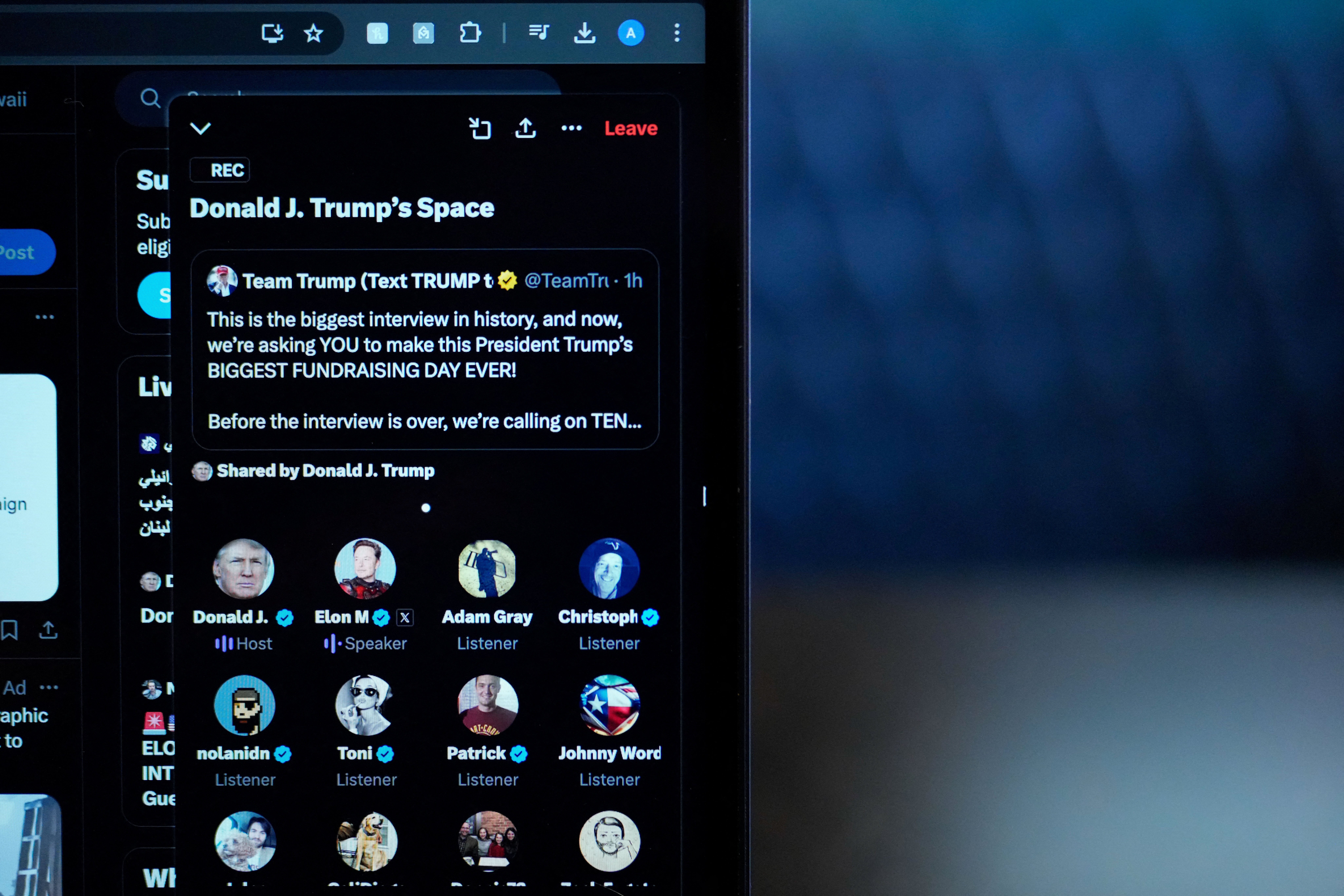Elon Musk draws fire for playing down impact of atomic bombing of Japan: ‘Not as scary as people think’
‘It is not as scary as people think, basically,’ Tesla chief says
Your support helps us to tell the story
From reproductive rights to climate change to Big Tech, The Independent is on the ground when the story is developing. Whether it's investigating the financials of Elon Musk's pro-Trump PAC or producing our latest documentary, 'The A Word', which shines a light on the American women fighting for reproductive rights, we know how important it is to parse out the facts from the messaging.
At such a critical moment in US history, we need reporters on the ground. Your donation allows us to keep sending journalists to speak to both sides of the story.
The Independent is trusted by Americans across the entire political spectrum. And unlike many other quality news outlets, we choose not to lock Americans out of our reporting and analysis with paywalls. We believe quality journalism should be available to everyone, paid for by those who can afford it.
Your support makes all the difference.Elon Musk has been accused of underplaying America’s atomic bombing of Japan’s Hiroshima and Nagasaki in World War II during his interview of Donald Trump.
Mr Musk was talking about nuclear power with the former president when he said people have an unfounded fear of nuclear electricity generation. It is the “safest form of electricity generation”, he argued.
“People were asking me in California, are you worried about a nuclear cloud coming from Japan? I am like no, that's crazy. It is actually, it is not even dangerous in Fukushima. I flew there and ate locally grown vegetables on TV to prove it," he said during the interview on his social media platform X on Monday.
"Hiroshima and Nagasaki were bombed but now they are full cities again," the multibillionaire owner of Tesla, SpaceX and X said.
"That's great, that's great," Mr Trump responded.
"It is not as scary as people think, basically," Mr Musk added.
They joked about nuclear power facing a “branding problem”.
“We will have to rebrand it,” the former president told Mr Musk. “We will name it after you or something.”

America dropped an atomic bomb on Hiroshima on 6 August 1945, destroying the city and killing 140,000 people. Three days later, it nuked Nagasaki and killed 70,000 more people.
Japan surrendered on 15 August, ending World War II.
Mr Musk’s remarks understating the gravity of the atomic bombing of Japan and the Fukushima meltdown triggered an uproar on social media.
"Musk is minimising what happened in Fukushima. I am as big a fan of nuclear power as there is but this is a completely dumba** thing to say," academic and author Tom Nichols said on X.
A towering tsunami slammed into the Fukushima Daiichi nuclear power plant in 2011, destroying its power supply and cooling systems and sparking meltdowns in three of its six reactors. The tsunami and the 9.0 magnitude earthquake that triggered it killed about 20,000 people and the meltdown left large parts of Fukushima prefecture uninhabitable.
“But he topped it by noting that Hiroshima and Nagasaki are fine now," Mr Nichols said, referring to Mr Musk.
"Great job boys, just lost one of our most important allies in Asia," said writer Kevin Xu.
At a ceremony marking the anniversary of the atomic bombing last week, Nagasaki mayor Shiro Suzuki called on countries with nuclear weapons and those under their nuclear umbrellas, including Japan, to abolish them.
“You must face up to the reality that the very existence of nuclear weapons poses an increasing threat to humankind,” Mr Suzuki said, “and you must make a brave shift toward the abolition of nuclear weapons.”
The ceremony was boycotted by ambassadors of the US, UK and several European countries in protest against Israel not being invited.
Japan’s prime minister Fumio Kishida reiterated his pledge to pursue a nuclear weapons-free world. But his critics, many of them survivors of the atomic bombings, criticised it as a hollow pledge as Japan relies on the American nuclear umbrella while building up its own military.

Join our commenting forum
Join thought-provoking conversations, follow other Independent readers and see their replies
Comments